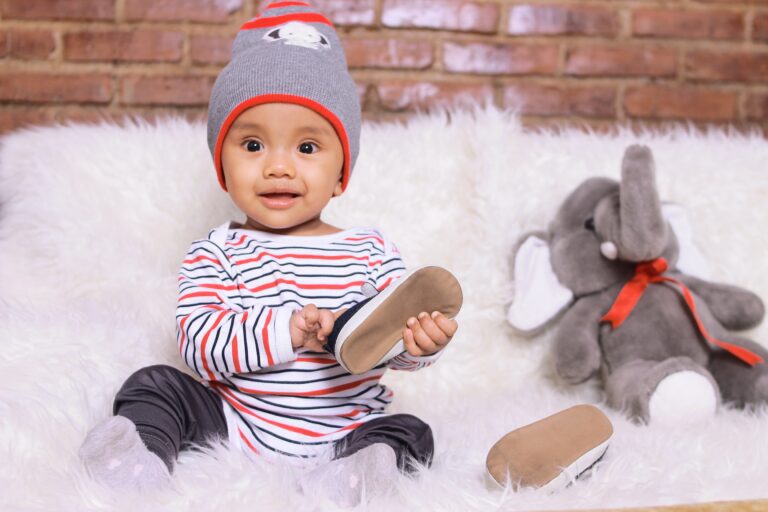Are you a new parent? Looking for ways to create a safe and peaceful environment for your little one?
Wondering how to soundproof the baby room?
All these questions come with a huge wave of parental emotions urging you to make your baby feel safest and happiest in the healthiest way possible.
One of our major concerns is Noise! So without wasting any time, let’s get into the major aspects of How to soundproof a Baby room.
Why does your baby need soundproofing?
While babies require some sound stimulation for their growth, too much noise can be harmful to their health and happiness. You might wish to think about soundproofing your baby’s room for the following reasons:
Sleep disturbance:
Infants require a lot of sleep, and loud noises might disrupt their sleep cycles. A study that was published in the Journal of Sleep Research found that infants who were exposed to loud noises at night had considerably lower sleep times.
Hearing damage:
A baby’s sensitive hearing can be harmed by loud noises or extended exposure to it. Hearing damage can occur when people are exposed to noise levels exceeding 85 decibels (dB), according to the American Academy of Pediatrics.
Cognitive development And Stress:
Being a parent our major concern includes the excessive noise that can affect our baby’s thinking and creativity in many ways.
According to a study in the journal Environmental Health Perspectives, too much noise during early childhood can lead to poor performance on cognitive tests.
But that’s not all. Loud noises can also stress out babies, which is not good for their health.
A study in the journal Pediatrics found that when babies are exposed to noise levels over 65 dB, their heart rates and cortisol levels can rise.
How can you provide your baby with a healthy noise-free environment?

Your baby needs a quiet atmosphere to thrive, both physically and mentally. Here are some ideas for making a peaceful, healthful atmosphere for your infant:
- Lower noise levels : To lower noise levels in the nursery, soundproof it. Employ soundproof doors, soundproof drapes, or acoustic panels. Seal any gaps or fractures.
- Employ white noise: White noise devices can help you and your baby relax by muffling outside noise.
- Close the nursery door: Doing so can assist to reduce sounds coming from other parts of the house.
- Make use of mild, calming music: Calming, peaceful music can help you and your baby relax.
- Use a sound machine with natural noises: Your kid can feel more at ease in an environment with natural sounds like rain or waves.
- Exposure : Limit your exposure to loud noises, such as those made by blenders, vacuum cleaners, or construction equipment.
- Implement noise-canceling headphones or earplugs: Consider wearing earplugs or noise-canceling headphones to lower noise levels if you live in a noisy setting or have noisy neighbors.
By doing these things, you can contribute to the development of a sound-free, healthful environment for your baby.
What are the safest soundproofing ways for your lovely baby?
The safety of the child is the primary concern when soundproofing the nursery. Some of the most secure techniques for baby-proofing a room are listed below:
- Utilize acoustic panels or soundproof curtains: These items are safe to use in a baby’s room and are made to dampen sound waves.
- Use acoustic caulk or non-toxic sealant to fill up gaps and cracks: When filling in cracks and holes in the space, it’s crucial to utilize non-toxic materials.
- Add safe insulation: Ask for safe insulation made of recycled denim or fiberglass that has undergone a non-toxic treatment process.
- Use carpets or rugs made of safe materials: Go for carpets or rugs made of natural fibers that haven’t been chemically treated, including wool, cotton, or bamboo.
- Employ double-pane windows made of tempered glass since it is less likely to shatter than standard glass and is safe to use in a baby’s room.
- Doors : Use soundproof doors that have received certification from agencies like the American Society for Testing and Materials and that meet safety requirements (ASTM).
- Equip furnishings and accessories made of secure materials: Choose home furnishings and accessories that are constructed of secure, non-toxic materials, such as solid wood or organic cotton.
- Consult with a professional: Consider consulting with a professional soundproofing company to ensure that the materials and methods used are safe for your baby.
- Contact a professional: To ensure that the techniques and materials utilized are secure for your infant, think about visiting a professional soundproofing firm.
You can ensure that your baby’s room is safe and soundproof by following these instructions.
How can you manage your baby’s growing up with the help of proper soundproofing?
An environment that is calm and pleasant for your kid to grow and thrive in can be created with the help of soundproofing. These are some strategies for using soundproofing to control your child’s development:
- Encourage sound sleep habits: Soundproofing can lessen outside noise that might wake up your infant from sleep and help them get the rest they require for healthy physical and mental development.
- Soundproofing can help parents and babies feel less stressed by establishing a calm, peaceful environment, which makes it simpler to handle the ups and downs of daily living.
- Promote learning and cognitive development: Noisy environments might hinder a child’s ability to learn, but a soundproofed setting can aid in fostering a state of increased focus and attention that will assist learning and cognitive development.
- Promote the development of language: Soundproofing can assist to reduce background noise, making it simpler for your infant to hear and discriminate sounds, which is crucial for language development.
- Provide a quiet and comfortable atmosphere for your baby to explore and play: Soundproofing can help create a tranquil and safe place for play and exploration by reducing noise levels from outside the room.
- As your baby grows and develops, soundproofing can assist to give them a sense of independence autonomy by helping to establish a separate, private environment for them.
How to make the most of homemade soundproofing materials?
Creating a peaceful and quiet environment for your baby doesn’t have to break the bank. Making your soundproofing materials can be a cost-effective option.
Here are some tips for getting the most out of your homemade soundproofing:
To create a peaceful environment for your baby. Here are some tips to help you soundproof your baby’s room:
- Use quality materials that are specifically made for soundproofing, like mass-loaded vinyl or acoustic foam.
- Take your time with installation and make sure everything is properly sealed and secured.
- You can make your soundproofing materials to save money.
- Layering different materials, such as acoustic foam and recycled denim insulation, can improve effectiveness.
- Cover the entire surface of the area you want to soundproof, whether it’s a wall, ceiling, or floor.
- Thicker materials like acoustic foam or insulation are more effective at soundproofing.
- Test the effectiveness with a sound level meter and make adjustments if necessary.
These pointers will help you get the most out of your DIY soundproofing materials and make your home serene and silent.
Read More :
How Soundproofing Your Garage for Band Practice
How Soundproofing Your Garage for Band Practice
Benefits of soundproofing your baby’s room.
- Promotes better sleep: Soundproofing helps create a peaceful environment that promotes healthy sleep patterns for your baby, leading to improved physical and cognitive development. Imagine your baby sleeping peacefully, undisturbed by noise.
- Reduces stress: Excessive noise can be stressful for babies and parents. Soundproofing reduces stress and creates a calm and relaxing environment. Imagine the relief of not having to worry about loud noises.
- Supports language development: A quiet environment helps babies hear and distinguish sounds, which is essential for language development. Imagine hearing your baby’s first words.
- Provides privacy: Soundproofing creates a private and separate space for your baby, promoting independence and autonomy. Imagine your baby feeling secure in their own space.
- Enhances safety: Soundproofing blocks out distracting or dangerous outside noises like traffic or construction noise, keeping your baby safe. Imagine feeling at ease, knowing your baby is protected.
- Reduces energy costs: Soundproofing materials insulate your baby’s room, reducing energy costs by keeping the room cooler in summer and warmer in winter. Imagine saving money while creating a better environment for your baby.
- Increases home value: Soundproofing is a desirable feature for home buyers, increasing the value of your home if you decide to sell in the future. Imagine making a wise investment that benefits both you and your baby.
Investing in soundproofing your baby’s room creates a comfortable, calm, and safe environment for your baby to grow and thrive in, with long-term benefits for their physical, cognitive, and emotional development.
Hope you got the exact answer to your question “How to Soundproof Baby Room?” with a lot of additional information. For more such information stay connected with us.
